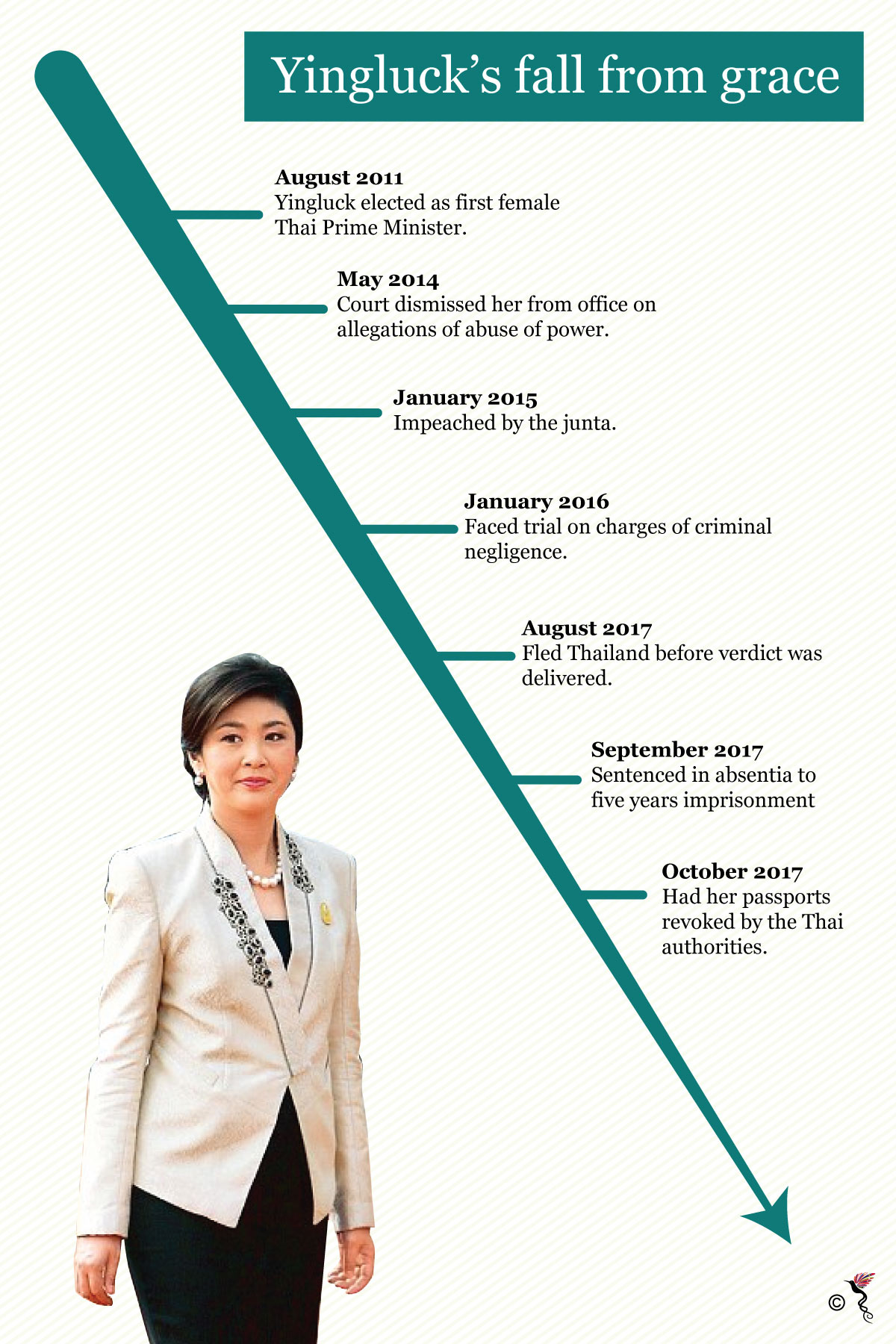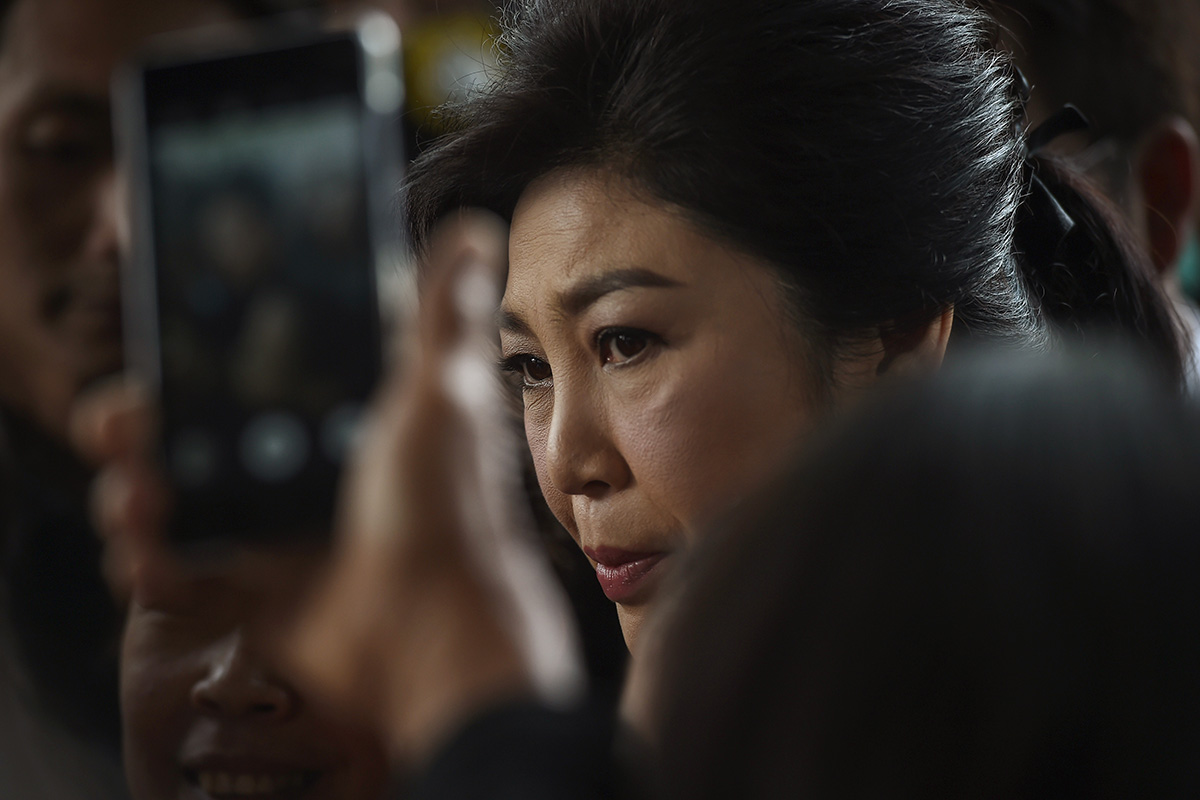It sounds like something out of a high stakes action flick, ala Mission Impossible – a fugitive on the run in a wild goose chase around the world across continents while slipping the fingers of the authorities at every twist and turn.
But such is the reality faced by ousted Thai leader, Yingluck Shinawatra who fled the nation days before she was due to stand trial for criminal negligence at the Supreme Court which could have seen her imprisoned for 10 years. However, the courts went ahead and in absentia, sentenced the former Thai Prime Minister to five years in prison and subsequently issuing a warrant for her arrest.
Her whereabouts are currently unknown. Local newspaper sources reported that she fled to Cambodia by land and flew to Singapore, then to Dubai where her brother Thakshin Shinawatra – who himself was Thailand’s premier before being ousted in a military coup in 2006 – is now living in self-exile.
Thailand’s current Prime Minister and leader of the junta army, Prayut Chan-o-cha said in late September that she was residing in the emirate with her brother. However, on Tuesday, he admitted to reporters he doesn’t know Yingluck’s whereabouts, adding that the prerogative is up to the country she is currently residing in to confirm her location with the Thai authorities.

Timeline of former Thailand prime minister Yingluck Shinawatra.
On the other hand, an unofficial source from the Thai junta quoted by AFP (Agence France-Presse) revealed that she likely flew in a private jet from Thailand to Singapore and onto Dubai. Nevertheless, the source added that Dubai is not Yingluck’s final destination as she might try to apply for asylum in the United Kingdom.
Thailand has an age-old extradition treaty with the United Kingdom which is still in effect and can be used to force Yingluck to return to the country and serve her sentence. The Attorney General's office in Thailand is in the midst of establishing a working group to deal with the extradition request.
The Thai Foreign Ministry on Monday revoked four passports belonging to the ex-premier – two personal passports and two diplomatic passports.
However, amidst the brouhaha over Yingluck’s "Houdini act", analysts claim there is a possibility that she had cut a backroom deal with the junta army to aid her escape – a claim refuted by the junta generals.

In this picture taken on November 4, 2016, former Thai prime minister Yingluck Shinawatra arrives at the Constitutional Court to stand trial for negligence over a rice pledging scheme in Bangkok, Thailand. (AFP Photo/Lilian Suwanrumpha)
According to Thomas Benjamin Daniel, an analyst with the Institute of Strategic and International Studies (ISIS) Malaysia, Yingluck being out of the country is a situation that benefits both sides.
“One way of looking at it is that the military junta would rather have her out of the way rather than deal with the consequences of locking her up,” he told The ASEAN Post in a telephone interview.
Yingluck became the 28th Prime Minister of Thailand in 2011 before being ousted in a military coup three years later. Her victory was reliant on a strong support base of rural and poor voters, who were enticed by her rice subsidy scheme, which later proved disastrous to the country’s economy.
To date, she still maintains a share of support from Thai citizens who like her, believe that charges against her are politically motivated.
Thailand has seen its democracy punctuated by military coups and violent street protests. The junta army has promised elections but has yet to keep their word. Even if Thailand citizens are allowed to vote for their leaders, the country’s record 20th constitution will likely curb the powers of those elected.
Recommended stories: